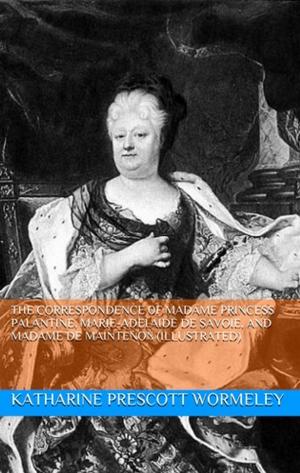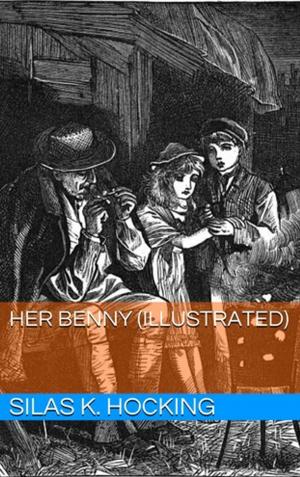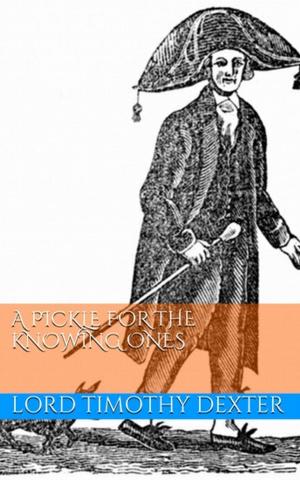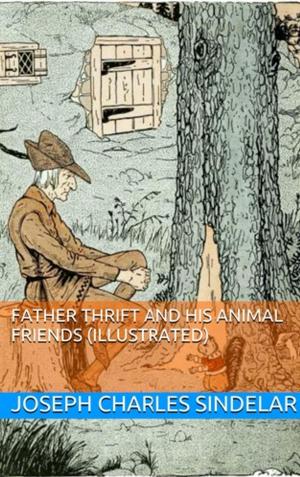| Author: | Various | ISBN: | 1230000155407 |
| Publisher: | Lost Leaf Publications | Publication: | July 27, 2013 |
| Imprint: | Language: | English |
| Author: | Various |
| ISBN: | 1230000155407 |
| Publisher: | Lost Leaf Publications |
| Publication: | July 27, 2013 |
| Imprint: | |
| Language: | English |
Author Preface:
A few years ago, at a dinner party in England, a very good story was told by one of the company, who represented the hero of the anecdote as a well-known nobleman then living. This story was immediately pronounced to be an “old Joe.” On this, a warm discussion took place, when it came out incidentally, that not one of those present had ever seen the book so familiarly referred to. This discovery aroused the curiosity of one of the party, who immediately resolved to procure a copy of the work—a most difficult and costly matter. Having procured the book, he decided to republish it for the benefit of his benighted fellow-countrymen, and the following volume is the result.
A singular fact connected with this work is, that every body presumes that he himself, and every other person, is perfectly familiar with its contents; and yet, if the reader will ask his friends, it will appear that not one in a thousand ever set eyes on a copy; indeed, we doubt much whether there are a dozen persons in the United States who have ever seen the work.
Mr. Joseph Miller—or Joe Miller, as he is generally called, with a familiarity that smacks of immortality—whose name as a wit is now current wherever the English language is spoken, was, when living, himself a jest for dulness, so that his name appended to this work is what Mr. Artemus Ward would call “sarkasum.” According to report, Miller, who was an excellent comic actor, but taciturn and saturnine, “was in the habit of spending his afternoons at the Black Jack, a well-known public-house in Portsmouth street, Clare Market, which at that time was frequented by the most respectable tradesmen in the neighborhood, who, from Joe’s imperturbable gravity, whenever any risible saying was recounted, ironically ascribed it to him. After his death, having left his family unprovided for, advantage was taken of this badinage. A Mr. Mottley, a well-known dramatist of that day, was employed to col[iv]lect all the stray jests, then current on town. Joe Miller’s name was prefixed to them, and from that day to this, the man who never uttered a jest has been the reputed author of every jest, past and present, and doubtless through future ages will receive credit for all the good things that may be said by the grandchildren of those youngsters who now collect —— and our knees, and, in the innocence of their hearts, never suspect (that which they will, alas! discover in after years) that we have been palming off on them “Old Joe’s,” as the production of our own unparalleled humor. Fathers may well dread the effect this book may have on the filial respect of their sons a generation hence, when they will cease to be the respected wits and become the beloved impostors.
This volume not only contains the jests of Joe Miller, but a large number of others, gathered from collections of Facetiæ previously and since published. But to the bookworm and student of Jokology, it will be sufficient to say that the first one hundred and ninety-eight jokes comprise the whole of the genuine edition.
When we look at the reputation of this Miller, we must needs be deeply impressed with the capriciousness of the character of Fame. A hero or a martyr dies—she gives one small toot and hangs up her horn. But some obscure person is hot with a jest, and her trumpet brays away in his honor for ages. Then, too, her mendacity—George of England is advertised as a saint, and Joe Miller as a wit. For aught we can tell to the contrary, our great-grandchildren may honor the name of Greeley as a leader of fashion. They may speak of him as Dandy Horace or Beau Greeley—tailors may adorn their magazines of fashion with his portrait. Miles O’Reilly may be canonized, and Artemus Ward handed down to posterity as a general officer in the confederate army.
JOE MILLER’S JESTS.
1. The Duke of Atholl, who says more good things than anybody, being behind the scenes the first night of the Beggars’ Opera, and meeting Cibber.
Author Preface:
A few years ago, at a dinner party in England, a very good story was told by one of the company, who represented the hero of the anecdote as a well-known nobleman then living. This story was immediately pronounced to be an “old Joe.” On this, a warm discussion took place, when it came out incidentally, that not one of those present had ever seen the book so familiarly referred to. This discovery aroused the curiosity of one of the party, who immediately resolved to procure a copy of the work—a most difficult and costly matter. Having procured the book, he decided to republish it for the benefit of his benighted fellow-countrymen, and the following volume is the result.
A singular fact connected with this work is, that every body presumes that he himself, and every other person, is perfectly familiar with its contents; and yet, if the reader will ask his friends, it will appear that not one in a thousand ever set eyes on a copy; indeed, we doubt much whether there are a dozen persons in the United States who have ever seen the work.
Mr. Joseph Miller—or Joe Miller, as he is generally called, with a familiarity that smacks of immortality—whose name as a wit is now current wherever the English language is spoken, was, when living, himself a jest for dulness, so that his name appended to this work is what Mr. Artemus Ward would call “sarkasum.” According to report, Miller, who was an excellent comic actor, but taciturn and saturnine, “was in the habit of spending his afternoons at the Black Jack, a well-known public-house in Portsmouth street, Clare Market, which at that time was frequented by the most respectable tradesmen in the neighborhood, who, from Joe’s imperturbable gravity, whenever any risible saying was recounted, ironically ascribed it to him. After his death, having left his family unprovided for, advantage was taken of this badinage. A Mr. Mottley, a well-known dramatist of that day, was employed to col[iv]lect all the stray jests, then current on town. Joe Miller’s name was prefixed to them, and from that day to this, the man who never uttered a jest has been the reputed author of every jest, past and present, and doubtless through future ages will receive credit for all the good things that may be said by the grandchildren of those youngsters who now collect —— and our knees, and, in the innocence of their hearts, never suspect (that which they will, alas! discover in after years) that we have been palming off on them “Old Joe’s,” as the production of our own unparalleled humor. Fathers may well dread the effect this book may have on the filial respect of their sons a generation hence, when they will cease to be the respected wits and become the beloved impostors.
This volume not only contains the jests of Joe Miller, but a large number of others, gathered from collections of Facetiæ previously and since published. But to the bookworm and student of Jokology, it will be sufficient to say that the first one hundred and ninety-eight jokes comprise the whole of the genuine edition.
When we look at the reputation of this Miller, we must needs be deeply impressed with the capriciousness of the character of Fame. A hero or a martyr dies—she gives one small toot and hangs up her horn. But some obscure person is hot with a jest, and her trumpet brays away in his honor for ages. Then, too, her mendacity—George of England is advertised as a saint, and Joe Miller as a wit. For aught we can tell to the contrary, our great-grandchildren may honor the name of Greeley as a leader of fashion. They may speak of him as Dandy Horace or Beau Greeley—tailors may adorn their magazines of fashion with his portrait. Miles O’Reilly may be canonized, and Artemus Ward handed down to posterity as a general officer in the confederate army.
JOE MILLER’S JESTS.
1. The Duke of Atholl, who says more good things than anybody, being behind the scenes the first night of the Beggars’ Opera, and meeting Cibber.















